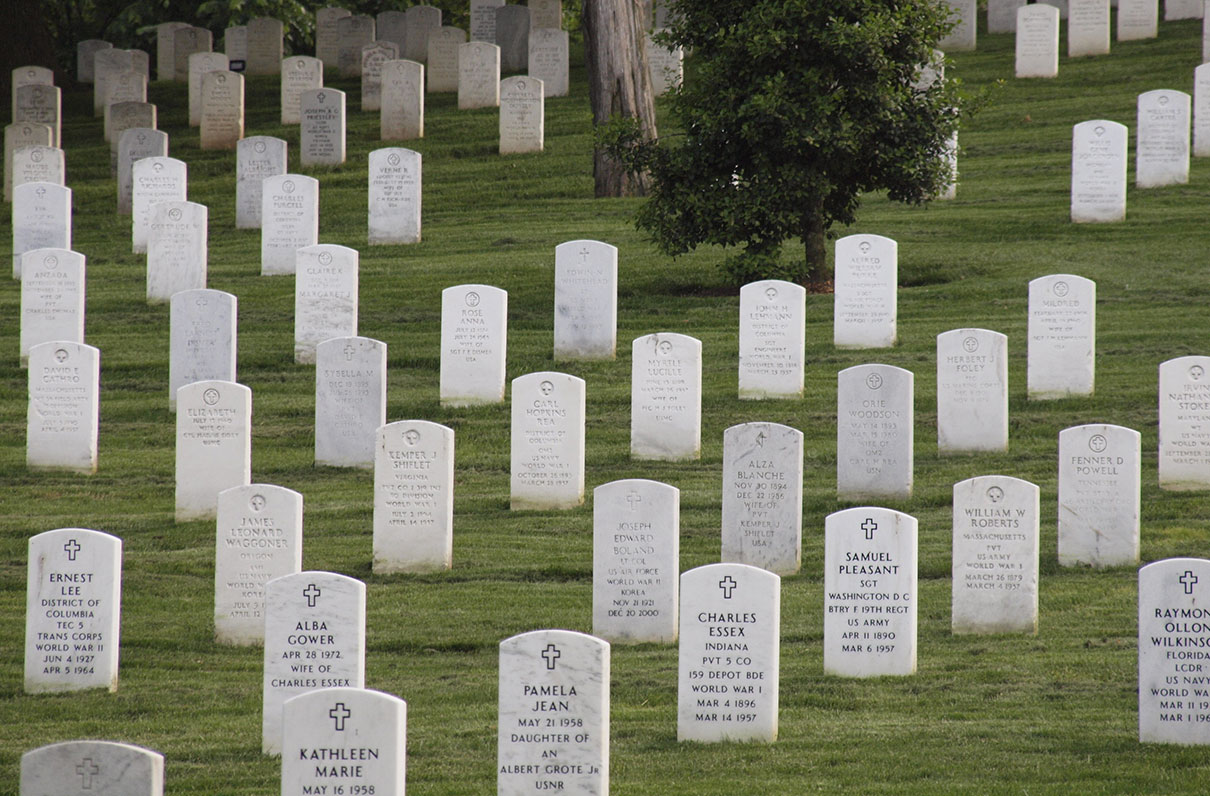Roughly 23 years remain until Arlington National Cemetery (ANC) runs out of space for new burials. Thus, hundreds of thousands believe eligibility rules for burial at the cemetery should be tighter. The results of a several-month-long survey suggest two key themes for public perspective on the capacity issue at ANC:
- The cemetery should remain open for new burials for another century, and beyond.
- Only those who have given the ultimate sacrifice or earned a particular award of high honor should have the right to be buried there.
The survey was open to anyone who wished to take it, military and civilian alike. It was advertised on the ANC webpage, sent out to all .mil email addresses, and distributed by military and veterans' groups like MOAA.
The Advisory Committee on Arlington National Cemetery, comprised of cemetery officials, a former congressman, and retired servicemembers, held another public meeting this week to present the survey findings.
Here are a few key takeaways from the survey:
- Out of 230,000 total respondents: 128,840 total Retirees, 49,230 Veterans, 12,528 family members, and 37,418 current military responded
- 89% of veterans (includes retirees) and 90% of currently serving who took the survey say ANC should expand where possible but limit eligibility when necessary
- 76% of veterans and 78% of currently serving who took the survey agreed ANC should restrict eligible populations to extend the future of active burials
- While over half of respondents agreed retirees should remain a high priority for burial eligibility, higher priority should be given to the following categories (from highest to lowest): Medal of Honor recipients, killed in action, high award recipients, former POW's, Purple Heart recipients, WWII-era veterans, active duty deaths
- 91% of respondents support changes that would leave retirees eligible for above ground placement
MOAA President and CEO Lt. Gen. Dana T. Atkins (USAF, Ret.) commended Arlington leaders for surveying hundreds of thousands of Americans, but called for transparency in moving forward.
"Congress gave the Army an end objective to keep the cemetery open for 150 years,” Atkins said. “Now we must do all we can to ensure the decisions made do the most good for the most number of the currently eligible population. It's important the Secretary of the Army and the Arlington National Cemetery leadership commit to an information campaign that ensures the widest reach and the utmost transparency as to the changes and alternatives being considered for those affected.”
The Wednesday meeting also served as an opportunity for all interested stakeholders to express their thoughts and concerns over a directive included in the FY 2019 National Defense Authorization Act. The provision requires the secretary of the Army make changes to interment eligibility at ANC by the end of September 2019. The changes are to be significant enough to preserve space for new burials “well into the future,” meaning at least 100 years.
The advisory committee's prior research shows that given current burial rates and demand, the only way to retain ANC as an active cemetery that far into the future is by cutting off a significant number of the retiree population. Retirees were first deemed eligible in 1967, when the population was about a quarter of the size it is today.
MOAA took the meeting as yet another chance to reinforce how meaningful the option of burial at ANC is for its own members, a sentiment echoed by many of the other veterans' organizations in attendance.
All opportunities to expand the land should still take priority over changing eligibility. But given the latest survey results, expansion is unlikely to be the only way forward for cemetery administrators.
With the increasing likelihood that eligibility will change in some way, it's time to consider ways to preserve the maximum number of spaces for the currently eligible. It seems likely in-ground and above-ground burial, which already hold different qualifying factors, will be further differentiated.
It's also possible that only a portion of the current land could be set aside under new eligibility rules and still satisfy the requirement to remain open well into the future. Or perhaps any future land acquisitions could carry new burial rules. A wait-list should still be a consideration as well.
Ultimately, a major point of concern will be the method of notification of policy change. It isn't hard to picture a family whose loved one has passed away, yet were unaware that burial at ANC was no longer an option. It would be a frustrating and painful scenario for all involved if the proper communication efforts aren't made and contingency plans aren't put in place.
The advisory committee considers this survey to be a contributing factor to the final recommendation it will make to the secretary of the Army. The committee members also recognize the frustration that the results are likely to inspire in many servicemembers who have intentions to be interred at ANC.
There have been no official directives in terms of specific eligibility cutoffs, but more details are likely to arise in the coming months.
